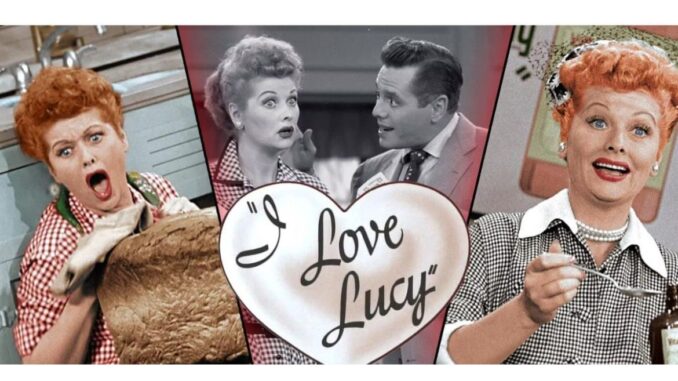
For decades, I Love Lucy has been celebrated as one of television’s greatest sitcoms, with Lucille Ball’s comedic genius and the ensemble cast creating magic that still resonates today. Yet behind the curtain of laughter, one of its key stars, Vivian Vance, was quietly carrying a heavy burden — one rooted in typecasting, creative imbalance, and personal dissatisfaction.
Vance, cast as Lucy Ricardo’s loyal best friend Ethel Mertz, quickly won audiences over with her impeccable comedic timing and down-to-earth charm. On screen, Ethel was the perfect foil to Lucy’s outrageous antics, often pulled into schemes while also grounding the chaos. But while fans adored her, Vance struggled deeply with how the character was written and presented.
One of her greatest frustrations came from the way Ethel was portrayed in contrast to Lucy. While Lucille Ball’s character was given space to be glamorous, stylish, and at times even aspirational, Vance was often styled deliberately frumpy, older, and less attractive. Costuming and makeup choices intentionally downplayed her looks, cementing her role as the “ordinary” counterpart. For Vance, who in reality was a vibrant and attractive woman, this creative decision felt like an unfair cage that robbed her of the chance to show her true self.
Adding to this was the casting of William Frawley as her on-screen husband Fred Mertz. Frawley was 22 years her senior, and their marriage was often played for laughs as mismatched, bickering, and unromantic. This dynamic, though comedic gold for audiences, left Vance privately frustrated, as she felt it reinforced an image of her that didn’t align with her own identity. Their strained off-screen relationship only heightened the tension, with reports of open hostility between the two actors during the show’s run.
Still, Vance never let her frustrations bleed into her performance. Her ability to deliver lines with razor-sharp timing, play the exasperated friend with sincerity, and serve as Lucy’s indispensable partner in chaos elevated I Love Lucy into legendary status. Without Ethel, Lucy’s wild adventures might have seemed over the top — Vance provided the balance that made the comedy work.
Yet behind the laughter, Vance often confided to friends that she longed for roles that would let her shine differently — roles where she could express glamour, wit, and depth beyond the dowdy sidekick archetype. While she later reprised the role of Ethel in spinoffs like The Lucy Show, the shadow of being forever remembered as “Ethel Mertz” was both a badge of honor and a personal frustration.
In retrospect, Vance’s hidden struggle sheds light on a larger truth about Hollywood’s golden age: that even in groundbreaking, beloved productions, the constraints of typecasting and gender expectations often left actors feeling trapped. Her story is a reminder that what audiences see on screen — laughter, friendship, joy — can mask very real battles happening behind the scenes.
Vivian Vance’s legacy, however, remains untouchable. She may have carried frustrations, but she also carried I Love Lucy into television history, leaving behind a role that continues to inspire generations. Her hidden battle only deepens our appreciation for the resilience and artistry she brought to one of the most iconic sitcoms of all time.
